Statement by
the Japanese Association of
Zoos and Aquariums
Statement of the Japanese Association of Zoos and Aquariums (JAZA)
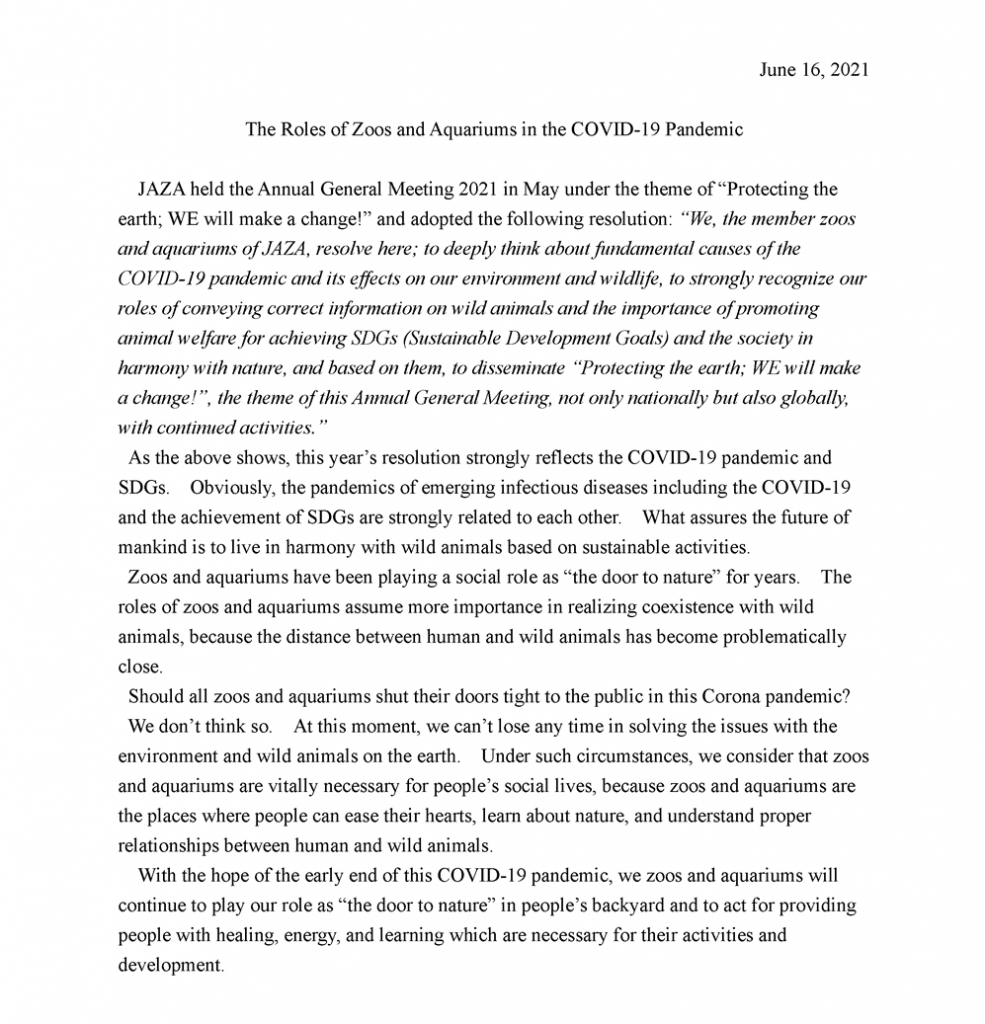
The Roles of Zoos and Aquariums in the COVID-19 Pandemic
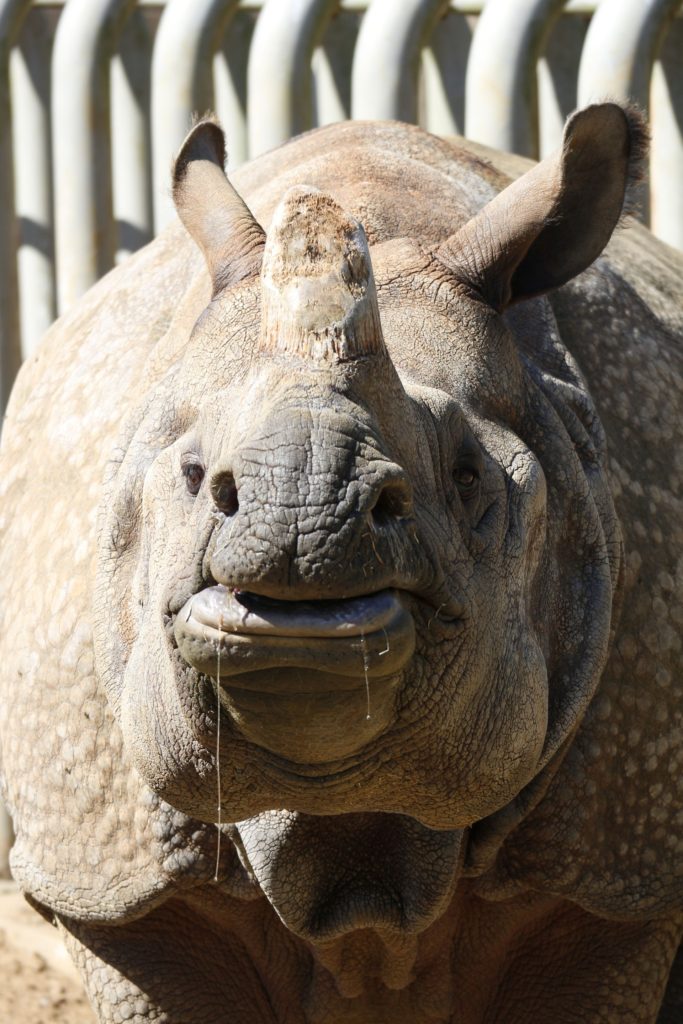
June 16, 2021
JAZA held the Annual General Meeting 2021 in May under the theme of “Protecting the earth; WE will make a change!” and adopted the following resolution: “We, the member zoos and aquariums of JAZA, resolve here; to deeply think about fundamental causes of the COVID-19 pandemic and its effects on our environment and wildlife, to strongly recognize our roles of conveying correct information on wild animals and the importance of promoting animal welfare for achieving SDGs (Sustainable Development Goals) and the society in harmony with nature, and based on them, to disseminate “Protecting the earth; WE will make a change!”, the theme of this Annual General Meeting, not only nationally but also globally, with continued activities.”
As the above shows, this year’s resolution strongly reflects the COVID-19 pandemic and SDGs. Obviously, the pandemics of emerging infectious diseases including the COVID-19 and the achievement of SDGs are strongly related to each other. What assures the future of peoplekind is to live in harmony with wild animals based on sustainable activities.
Zoos and aquariums have been playing a social role as “the door to nature” for years. The roles of zoos and aquariums assume more importance in realizing coexistence with wild animals, because the distance between human and wild animals has become problematically close.
Should all zoos and aquariums shut their doors tight to the public in this Corona pandemic?
We don’t think so. At this moment, we can’t lose any time in solving the issues with the environment and wild animals on the earth. Under such circumstances, we consider that zoos and aquariums are vitally necessary for people’s social lives, because zoos and aquariums are the places where people can ease their hearts, learn about nature, and understand proper relationships between human and wild animals.
With the hope of the early end of this COVID-19 pandemic, we zoos and aquariums will continue to play our role as “the door to nature” in people’s backyard and to act for providing people with healing, energy, and learning which are necessary for their activities and development.
Efforts of the Japan Association of Zoos and Aquariums for Dolphins
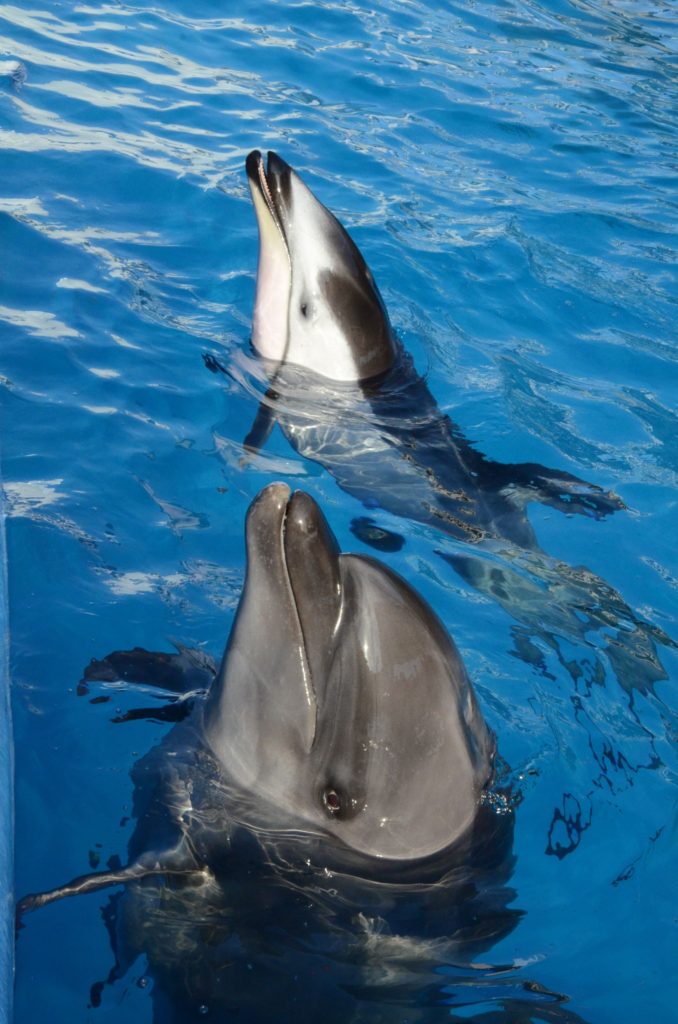
2018.10.01
Japanese Association of Zoos and Aquariums (JAZA) was decided in May 2015 not to allow dolphins caught by drive fisheries to be brought under human care in JAZA member zoos and aquariums.
This decision arrived through mutual consultation with World Association of Zoos and Aquariums (WAZA) of which we are a member.
This is a decision based on the Association’s animal ethics and welfare code in which is stipulated that “Animals should originate from captive-bred individuals as much as possible, and any animal acquisitions through other means should be not only legal, but also adhere to careful ethical and animal welfare considerations for individuals, as well as the conservation of the species.”
As stipulated for elephants and giraffes, JAZA members do their utmost to avoid bringing in dolphins from the wild, and instead are promoting captive breeding programs. JAZA actively supports member zoos and aquariums engaged in such efforts to achieve this goal.
Last November, JAZA initiated the Aquarium Division to address various topic in aquariums management such as husbandry and captive breeding programs. JAZA also formed the “Dolphin Conference” in the Aquarium Division to facilitate cooperation, e.g. in promoting professional transfers of dolphins for breeding, share techniques of artificial insemination, and organize workshops on caring for young dolphins born in captivity.
JAZA believes that promoting good animal welfare and contributing to wildlife conservation are important duties of modern zoos and aquariums. The establishment of the Dolphin Conference is a first step to many future efforts to maintain and improve animal welfare and conservation programs in JAZA member zoos and aquariums.
We appreciate your continued understanding and support.
Japanese Association of Zoos and Aquariums
Environmental Quality Improvement for Singly-housed Elephants
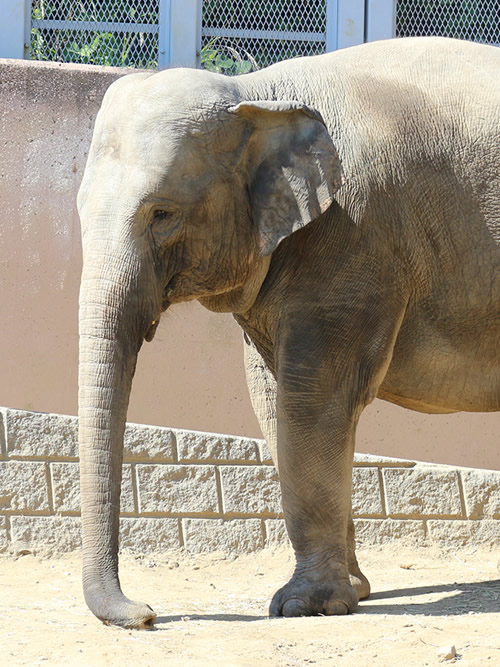
2018.01.31
The Japanese Association of Zoos and Aquariums (JAZA) is deeply engaged in and committed to realizing species-appropriate animal care that also meets individual needs in compliance with the act on Welfare and Management of Animals.
This holds true for elephants. To ensure optimal welfare we believe that elephants should be cared for and housed in a meaningful group context, as they are highly social animals and their communicational and physical interactions among individuals are essential to welfare.
However, currently several Japanese institutions are caring for singly-housed elephants.
We are committed to review the needs for each individual elephant to assess and determine what is in his or her best interest. JAZA members will strive to transfer and integrate singly-housed elephants to a group structure where possible. Some elephants who have lived alone for a very long time might need longer habituation time to new and different environments, as well as social companions. Novelties can cause unnecessary distress, which we can prevent by considering the individual’s best interest.
By observing behavior and interactions, as well as considering their individual character, we intend to slowly integrate many of the singly-housed elephants. The elephants in singly-housed environments shall be provided with extensive environmental enrichment programs, offering choice, control, and complexity.
Improving the environmental quality of singly-housed elephants is not a simple problem that can be solved by individual institutions’ efforts alone. JAZA will be working with them with the leadership of its Elephant Management Committee
Improving the environment for solitary elephants

December 27, 2017
The Japanese Association of Zoos and Aquariums (JAZA) is working every day to achieve breeding that meets the natural habits of animals in compliance with the Law Concerning the Protection and Management of Animals (Animal Protection and Management Law).
Elephants are also social animals, and communication between individuals is important for keeping elephants healthy. However, there are still a few facilities that keep elephants alone, and we have received criticism for this.
As a solution to this situation, we are determined to move elephants from solitary keeping to multiple living together as much as possible. However, we have experienced that co-habitation of elephants that have lived alone for a long period of time can sometimes result in great stress to the elephants.
Therefore, we are going to try multiple rearing of elephants while considering their personalities, and at the same time, we are going to promote environmental enrichment for the elephants who live alone, enriching the rearing environment and creating an environment where the elephants can choose various behaviors by themselves.
Improving the captive environment for solitary elephants is not a problem that can be solved only by the efforts of individual zoos.
The Elephant Council organized by JAZA will take the lead in gathering wisdom and working with individual zoos to improve the environment.
We would like to ask for the continued understanding and cooperation of all citizens.
Keeping Animals on Display in Consideration of Animal Welfare
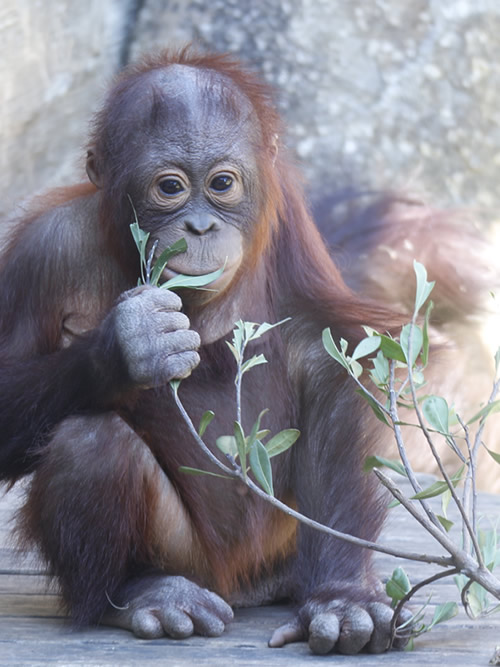
June 16, 2017
Japanese Association of Zoos and Aquariums
The Japanese Association of Zoos and Aquariums (JZA) has developed a Code of Ethics and Welfare under which member zoos and aquariums are to strive to improve the welfare of their exhibit animals. Keeping animals in an environment that suits their habits has a positive impact on their reproduction. In addition, we believe that by seeing animals living in a comfortable environment, visitors will have a better understanding of the animals and will be able to spend a more comfortable time with them.
Although not a member of our association, there are some animal exhibition facilities that have recently become a hot topic in the mass media and among animal experts in terms of their breeding environment and methods.
One is a zoo located in a shopping mall in Shiga Prefecture. It is being discussed that the facilities for keeping lions here are too small and that their health care is inadequate. I asked a representative of the Shiga Prefectural Government about the situation, and he told me that after inspecting the site, he instructed the prefecture to come up with an improvement plan. I hope that the prefectural government’s guidance will be properly carried out.
Another example is the animal exhibition facility in Kumamoto Prefecture. A chimpanzee child born in September 2015 was released from its mother because it looked weak, and a human took over as its parent and raised it to perform in a show from July 2016. When chimpanzee babies are separated from their mothers and raised by humans, they cannot learn from their mothers what they need to live as chimpanzees. The basic principle of raising chimpanzees is to return the babies to their mothers as soon as they are well enough. The future of chimpanzees imprinted by humans is not bright.
We have expressed our thoughts on the two cases on our public website.
All the member zoos and aquariums of the Japanese Association of Zoos and Aquariums will continue to make every effort to ensure that the animals in their care can live in as comfortable an environment as possible. We would like to ask for your continued understanding and support.

